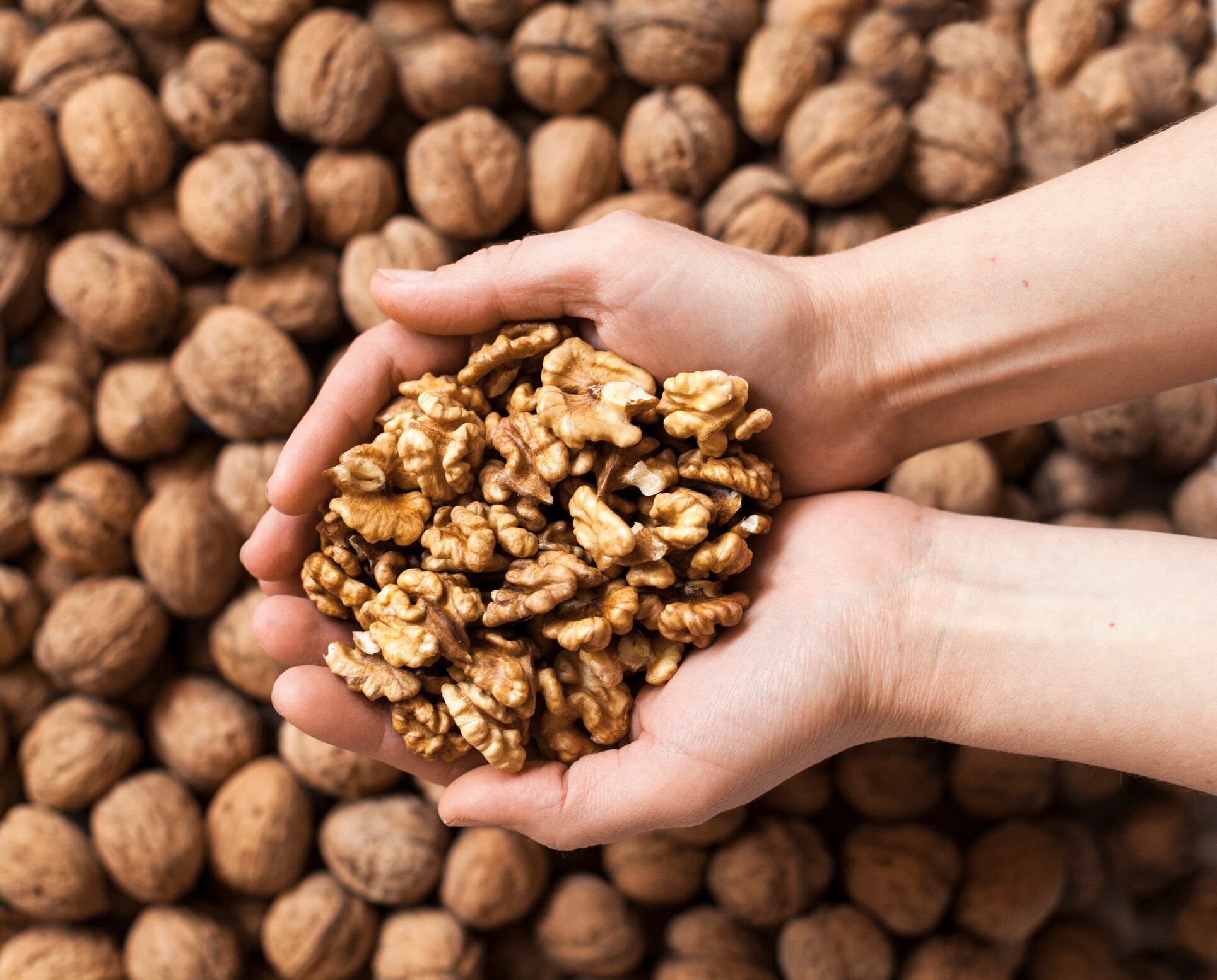Key points
- Standalone products are on the rise
- The halo effect of herb and nut extracts
- Cognitive health offers universal appeal
- Benefits cognitive health products should provide
- How research can lead to more health claims
The surge in demand for functional foods over the past decade has largely been driven by people looking to improve their heart or digestive health.
But, as concerns grow over the debilitating effects of mental illnesses such as Alzheimer’s disease and other forms of dementia, and with teenagers and younger adults increasingly looking for a mental edge to help with their studies and careers, the market for products that improve brain function looks set to compete with these established segments.
A 2015 Euromonitor report estimated the global market for food and beverage products with a cognitive health positioning to be worth $478M (£370M), and businesses operating in this market believe it has strong potential to grow even more in the years ahead.
“Historically, cognition has been overlooked in favour of what are considered to be more physical attributes, such as cardiovascular or digestive health.
“However, the understanding of cognitive health is growing and an increasing number of people are now seeking ways to look after their brains,” says Maria Pavlidou, head of communications for human nutrition and health, Europe, the Middle East and Africa, at DSM.
A recent survey by DSM revealed that four out of five people understood the importance of nutrition, but 45% of people surveyed were concerned they were not getting the right amount of essential nutrients.
The same survey also found mental health – particularly Alzheimer’s disease and depression – was a key concern across the countries surveyed.
Standalone products are on the rise (return to top)
It’s long been considered that following a Mediterranean diet of fruits, vegetables, nuts, fish and wine can lead to improved brain health in later life, but in recent years there has been a number of standalone functional products launched that purport to offer cognitive and brain health benefits.
Launching a product in this space is not without its challenges. The EU health claims approvals process has not been kind to cognitive health products, with authorised claims largely restricted to the contribution of B vitamins and minerals such as iron, iodine and zinc to normal psychological or cognitive function.
The European Commission has, however, authorised a claim for docosahexaenoic acid’s (DHA’s) role in the maintenance of normal brain function in a healthy population, Pavlidou notes.
Indeed, of all the substances reported to affect cognition, it is the long-chain omega-3s, DHA and eicosapentaenoic acid (EPA), that are associated with the largest body of evidence. And, because the levels of these substances vary dramatically in natural foods like fish and eggs, a market has emerged for omega-3 as an ingredient in functional foods such as milk, bread and juices.
The high level of scientific rigour required to achieve authorisation does not appear to be holding back the market, with consumers seemingly happy to make up their own minds about the value and efficacy of cognitive health products.

The halo effect of herb and nut extracts (return to top)
Herbal extracts are benefiting from the “natural” halo effect and are becoming more and more popular in the market, along with known botanicals such as ginkgo biloba and ginseng, says Yannick Capelle, product manager at Frutarom Health.
“We notice also an increase of demand for relaxation/sleep botanical extracts such a lemon balm or valerian,” adds Capelle.
Walnuts are another ingredient benefiting from a positive association with cognitive health, according to Peter Meadows, founder of The Garden, the agency that represents California Walnuts in the UK.
“They contain a number of potentially neuroprotective compounds including vitamin E, folate, melatonin, several antioxidative polyphenols and significant amounts of omega-3 fatty acids,” explains Meadows.
A growing body of research is supportive of the benefits of walnut consumption. Lenore Arab, professor of medicine at the David Geffen School of Medicine – part of the University of California, Los Angeles – notes that a number of studies have found positive associations between walnut consumption and cognitive functions among all adults, regardless of age, gender or ethnicity.
Cognitive health offers universal appeal (return to top)
Indeed, although longer life expectancy across the globe is creating a desire among older people to achieve improved cognitive health through diet, it is the universal appeal of cognitive health products that are really powering the market.
“The potential of the cognitive health market is very large as the benefit targets different age groups,” says Capelle.
Every age group is driven by their own unique set of demands. “Students want to keep their minds sharp during exams, working professionals in stressful jobs are looking for support to maintain concentration, alertness and mental performance, and ‘golden agers’ want to keep their memory and avoid cognitive decline,” says Capelle.
What’s more, while the older generation tend to favour supplements, Meadows says demand among millennials is for cognitive enhancing foods that can be eaten conveniently, including on-the-go.
Market demand also varies by geography with Asia and Latin America currently the most active markets for cognitive health foods, according to Capelle.
As for product categories, soft drinks and dairy remain the most popular for cognitive health launches, however, convenience formats such as chocolate or gummies are becoming more popular, he adds. Energy bars and even baby foods are also being used to carry brain health ingredients.

Benefits cognitive health products should provide (return to top)
According to Kemin Nutrition and Health, the key for products marketed for cognitive health should be demonstrably safe and provide tangible, measurable and/or noticeable benefits for cognitive performance such as improvements in working memory or mental sharpness, reductions in oxidative stress and increased neurogenesis.
“Above all, the most successful cognitive health products must help address the complex challenges for targeted working memory performance to appeal to most consumers,” says Miguel Martinho, Kemin’s Europe marketing manager.
Kemin’s Neumentix proprietary phenolic complex recently received ‘generally recognised as safe’ (GRAS) status in the US, meaning the water-extracted spearmint can now be used in a variety of functional food and beverage applications.
Vitamin E is another nutrient providing a wide range of cognitive benefits, notes Pavlidou, due to its antioxidant properties that protect cells from damage associated with oxidative stress. Vitamin E is naturally found in foods such as margarine, nuts and vegetable oil, but is also often used to fortify foods such as breakfast cereals.
“Research has also found a positive correlation between high plasma vitamin E levels and cognitive performance, as well as evidence that vitamin E may slow the progression of Alzheimer’s disease,” adds Pavlidou.
How research can lead to more health claims (return to top)
More ingredients are likely to seek approval for cognitive claims as the volume of evidence behind their benefits increases.
Research undertaken in the UK earlier this year, for example, found that regular consumption of concentrated blueberry juice might improve brain function in healthy older adults.
Researchers said the findings were likely to be attributable to a group of polyphenols known as flavonoids, which are abundant in plants and likely to be important bioactive components contributing to improved cognitive function. Similar effects have also been observed following consumption of high flavonol cocoa and orange juice.
Arjuna Natural Extracts, meanwhile, notes that sesamin and sesamolin, both components of sesame oil, are new entrants in the field of improving brain health and the subject of a number of studies aimed at understanding their effect on cognitive function. Curcumin, the natural spice that gives turmeric its yellow colour, is another promising candidate for improving brain health, the company adds.
Manufacturers of cognitive health ingredients will be watching such developments with interest as they seek to capitalise on a growing and potentially lucrative market.
Please click hereto sign-up for our free monthly Food Ingredients, Health & Nutrition (FIHN) newsletter.
